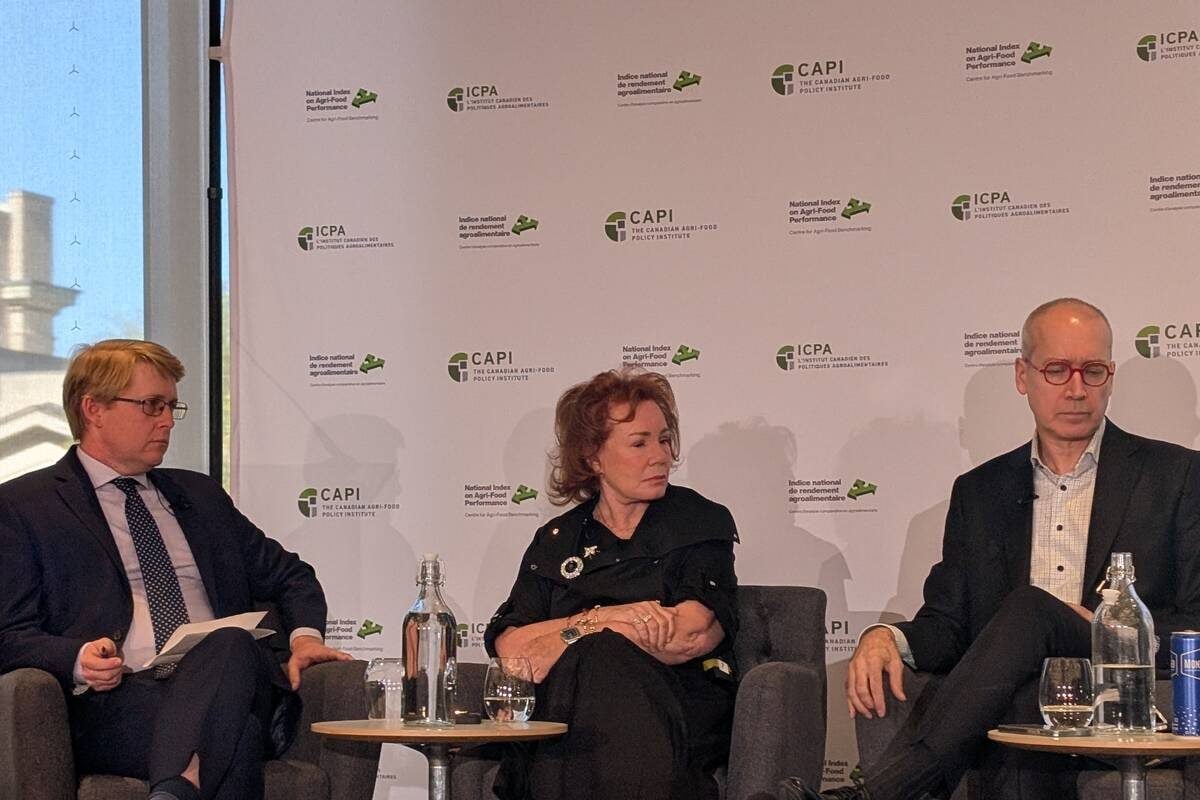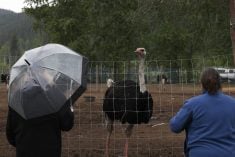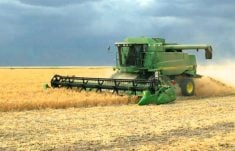NDP MP Alex Atamanenko says there probably isn’t enough support to pass his private member’s bill to require a complete lifetime medical record for horses slaughtered in Canada.
He said prominent members of his own party don’t support the bill because it would effectively shut down Canada’s horse slaughter industry.
“I find myself in a strange position, as the critic for agriculture … having to disagree with my good friend,” Malcolm Allen said in the House of Commons this week.
“The end result of this bill would be to end horse slaughter. It would not be an unintended consequence. It would be the intended consequence.”
Read Also

Arlene Dickinson says recent trip to Asia opened her eyes to new trade opportunities
Arlene Dickinson says Canada must take up decades-old suggestions to support the agriculture and food sectors
Atamanenko said the Liberals support Bill C-571, but Conservatives and NDP members do not.
“My party will be divided on this,” Atamanenko said in an interview.
“I suspect most of the Conservatives will probably oppose it.”
Atamanenko, who has introduced a number of bills to curtail Canada’s horse slaughter industry, said he’s concerned about the health risks associated with horse meat because horses slaughtered in Canada are potentially contaminated with pharmaceutical drugs.
Atamanenko spoke on behalf of Bill C-571 March 31 during its second reading. It would prohibit the slaughter of horses unless they were raised for human consumption and there is a complete lifetime record of all medical treatments that were administered.
Atamanenko said that’s a reasonable precaution because sport and recreation horses are treated with anti-inflammatory medications such phenylbutazone, commonly known as bute, along with wormers and steroids.
“Bill C-571 seeks to recognize that horses are ordinarily kept as domestic animals for recreational and sporting purposes, not to produce meat for human consumption, and may contain substances that are prohibited in food animals,” Atamanenko said in the House.
More than 70,000 horses were slaughtered at Canadian plants last year. Imported animals must come with an affidavit stating the horse’s history of medical treatments and be free of certain drugs for the previous six months.
Atamanenko said verification of the affidavit is inadequate.
“There are no official controls to verify the authenticity or reliability of the affidavit,” he said.
“The USDA assumes no responsibility regarding the origin of the animals, the controls in American institutions or the authenticity of the affidavit.”
The lack of oversight and regulation is an unacceptable risk, Atamanenko said.
“Is it possible to guarantee a safe horse meat product if it is produced from horses that were not raised or regulated within an agricultural industry and were never intended to enter the human food chain.”
Pierre Lemieux, parliamentary secretary to agriculture minister Gerry Ritz, said the Canadian Food Inspection Agency has strict protocols for bute, and any “horse with bute is not processed for human consumption.”
Earl Dreeshen, a Conservative MP for Red Deer, said the CFIA requires all slaughter horses to have an equine information document, which identifies the animal and provides a six-month medical history.
“The six-month period well exceeds the recommended withdrawal period for a number of veterinary drugs,” he said.
“The overwhelming majority of tests reveal freedom from drug residues. Compliance rates are very high. They are over 98 percent.”
Allen agreed that the CFIA deals with bute residues in a serious manner and that rules are in place to crack down on horse dealers who attempt to circumvent the rules.
“There is always a one-off, such as a horse being purchased only 24 hours or two or three days earlier, when the owner has attested to a six-month certificate,” Allen said.
“When those folks are found out, their licences have to be removed…. There are things in place to make sure that actually happens.”
Atamanenko said insufficient support for the bill means success is unlikely.
“I’m not feeling super optimistic at this point in time,” he said.
“But we’ll see, we’ll see what happens. It also depends on the amount of people (who) contact various MPs … and let them know if they’re concerned.”
MPs will debate Bill C-571 again in a few weeks and then vote on it in the next couple of months, which will determine whether it proceeds to the committee stage.















